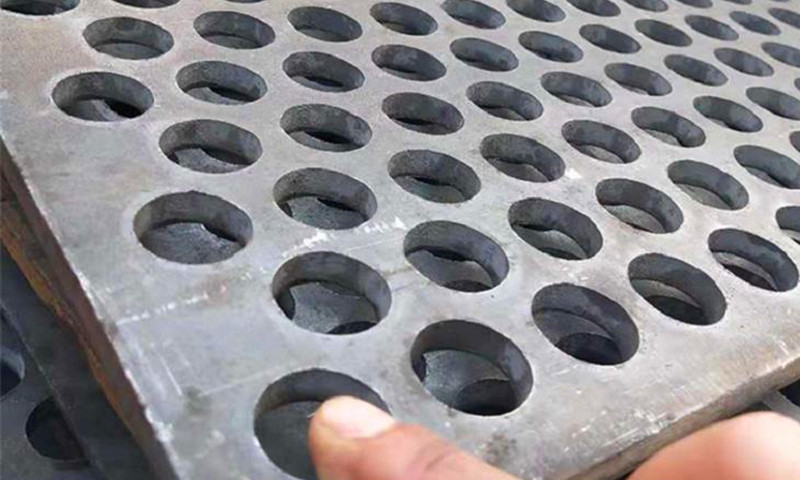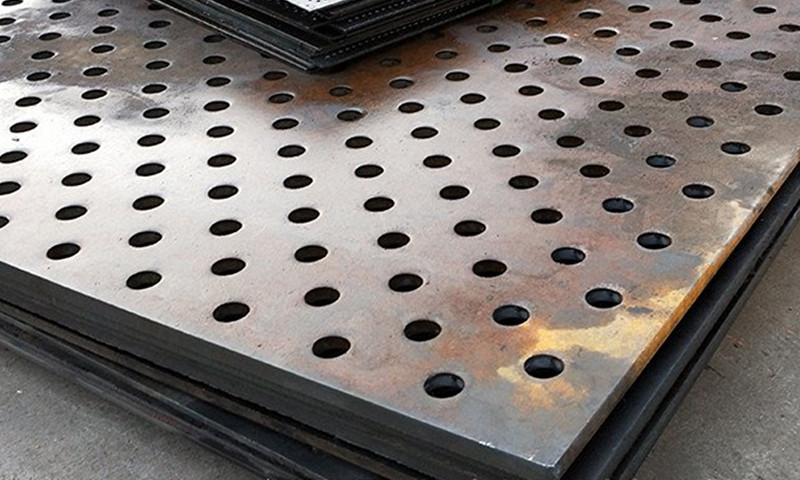What is the thickness of the round hole mesh plate
Source:www.cn-psp.cnAuthor:河北森驰公司 Last updated:2025-01-09 11:29:14 Browse:
Round hole mesh plates are metal mesh plates with uniformly distributed circular holes, widely used in industries, construction, decoration, and filtration. The thickness of the round hole mesh plate is one of its important physical parameters, directly affecting its strength, durability, and applicability. Different application scenarios require different thicknesses of round hole mesh plates, so understanding the standard thickness and selection methods is crucial.
1. Materials and Thickness of Round Hole Mesh Plates
The thickness of the round hole mesh plate typically refers to the thickness of the metal material, such as stainless steel, aluminum alloy, or mild steel. The strength and corrosion resistance of round hole mesh plates vary depending on the material used. Therefore, when choosing the thickness, the material's properties need to be considered. For example, stainless steel round hole mesh plates have higher corrosion resistance and strength, making them suitable for harsh environments, while aluminum alloy mesh plates are lighter and more suitable for applications where weight is a concern.
2. Factors for Selecting Thickness
The thickness of round hole mesh plates usually ranges from a few millimeters to several centimeters. The specific thickness depends on the application needs. If the application requires higher load-bearing capacity or compression strength, thicker round hole mesh plates are more suitable. For instance, in the construction industry, areas with higher load-bearing requirements often use thicker mesh plates, while thinner plates may be sufficient for lightweight applications such as decoration or ventilation.

3. Common Thickness Range for Round Hole Mesh Plates
The commonly found thickness of round hole mesh plates on the market generally ranges from 0.5 mm to 10 mm, which is closely related to the size of the hole, material selection, and other factors. In general, the larger the hole size, the thicker the plate will likely need to be. For some specialized applications, even thicker mesh plates may be used to enhance durability.
4. Functions and Uses of Round Hole Mesh Plates
The thickness selection of round hole mesh plates is closely related to their specific applications. For filtration and separation purposes, the thickness should be chosen based on the strength and corrosion resistance of the mesh plate to ensure its stability and effectiveness over extended use. For non-load-bearing applications, such as ventilation or decoration, thinner mesh plates are usually sufficient to meet the needs, offering better airflow and visual appeal.
\

Conclusion
The thickness of round hole mesh plates is a crucial parameter that not only determines the mechanical properties of the plate but also directly impacts its range of applications. Choosing the right thickness requires considering the specific environment, load requirements, and material characteristics. Understanding the standards and selection methods for round hole mesh plate thickness can help us better apply these materials in various fields.

